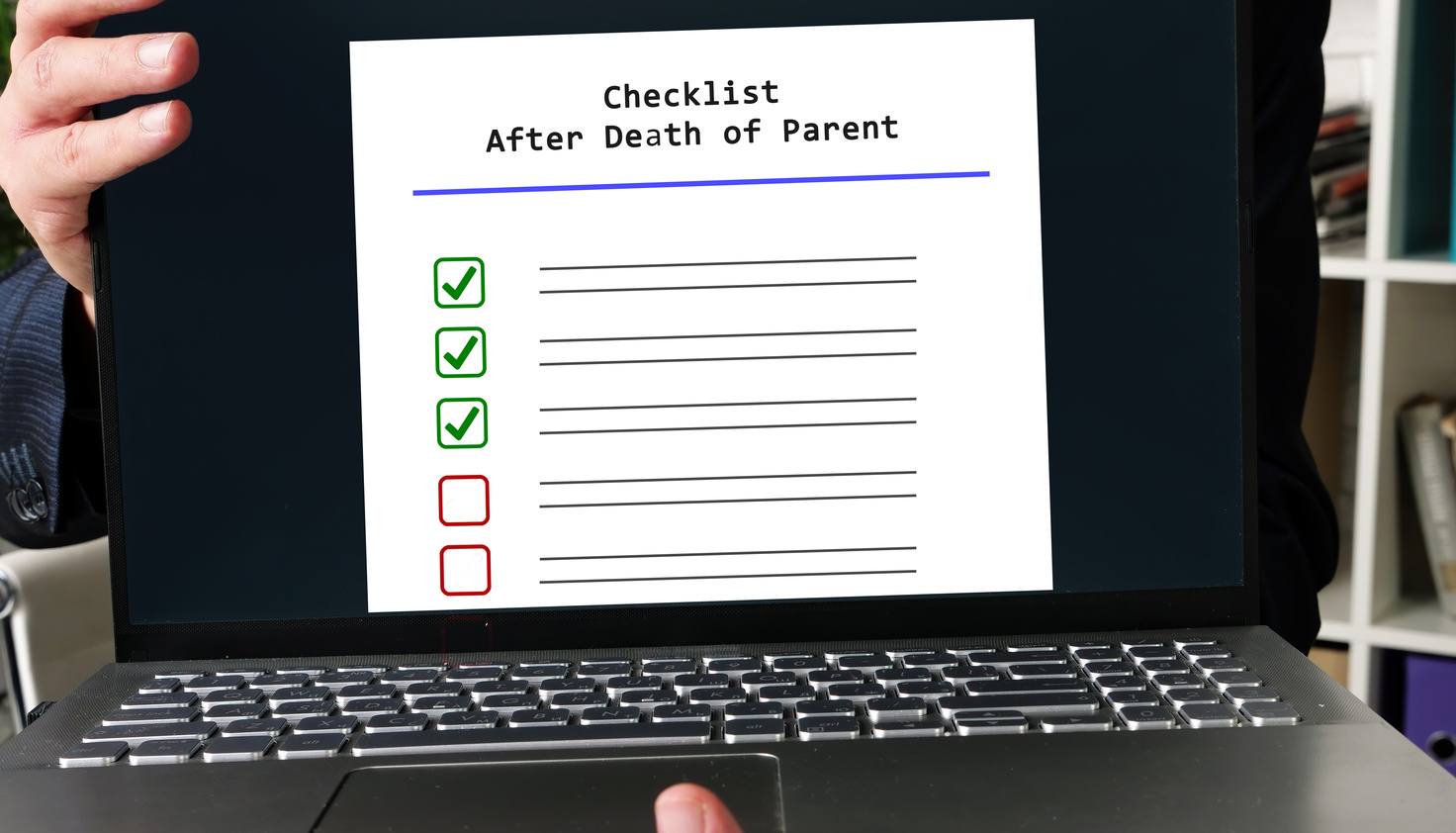Dealing with the death of a parent and selling a house are two of life’s most challenging experiences.
Handling them at the same time?
Be prepared for an emotional and overwhelming journey, all while processing grief and settling your parent’s estate.
Selling a deceased parent’s home often involves unique challenges beyond those of a typical sale.
Legal requirements, tax obligations, and emotional decision-making can all add layers of complexity.
One misstep could lead to costly delays, legal trouble, or a smaller financial return than you deserve.
How can you avoid these issues?
By educating yourself on how to handle the process, avoid common pitfalls, and make decisions that honor your parent’s legacy while maximizing the sale price.
Here’s everything you need to know about selling a house after the death of a parent.
Can I sell my deceased parent’s house without probate?
Yes, you can sell your deceased parent’s house without probate, but only if the property is legally exempt from the process.
This usually happens if the title of the property states that the home is held in a trust, has a transfer on death (TOD) deed, or is jointly owned with rights of survivorship.
- Trusts allow a trustee to manage or sell the property directly without court involvement.
- A TOD deed automatically transfers ownership to the named beneficiaries.
- Joint ownership with rights of survivorship ensures the surviving owner inherits full rights to the property.
If probate isn’t required, you can start the selling process right away without being held up by court proceedings.
But if probate applies, court approval will be necessary before the property can be sold.
Probate is required when the property is solely in your parent’s name with no automatic transfer instructions.
This includes situations where a will is present, as the court must validate the will and oversee the distribution of assets.
The approval process can take months or even years to complete, which is why selling a house in probate can be complex and time-consuming.
What to do before selling your deceased parent’s home
There are specific tasks you need to address before you list your deceased parent’s home for sale.
Why?
Because skipping these steps can lead to delays, unexpected costs, or complications that could jeopardize the sale.
Here’s what to take care of before putting your parent’s house on the market.
Verify how your parent’s held title on the property
The first step is to confirm the ownership status of your parents’ property.
This determines whether probate is needed and who has the legal right to sell the home.
Even if you’re confident probate isn’t required, it’s always wise to double-check.
You can do this by obtaining a title report from your county recorder’s office or through a real estate agent.
These reports are typically free, don’t initiate the selling process, and include important details about the property, such as:
- Liens and encumbrances
- Lot lines and tax rates
- How the property title is held (vesting).
You’ll want to check how your parent’s name is vested on the title.
Most title reports display this information within the first few pages.
Here’s what to focus on.
- Sole ownership: If the title lists only your parent’s name (e.g., “John Smith, a single man as his sole and separate property”), probate is likely required.
- Trust ownership: If the property is held in a trust, probate is not required.
- Transfer on death deed: TOD deeds are not allowed in every state, so it’s important to verify whether your parent used this mechanism. Unlike how the property is vested (e.g., sole ownership, joint tenancy), a TOD designation may appear elsewhere in the title report.
- Joint ownership with rights of survivorship: If your parent co-owned the property (e.g., with a spouse), the surviving owner automatically inherits the property and can sell it without probate. This type of ownership simplifies the process when selling a house when one owner is deceased and avoids the delays and complexities of probate.
Take control of your parent’s financial affairs
Organizing your parent’s finances is an important step when selling their house after they pass away.
Here’s what you should do.
Gather key documents
You’ll need certain documents to access financial accounts and move forward with selling the property.
These may include:
- Death certificate(s)
- Mortgage statements
- Bank statements
- Homeowners insurance policy
- Will or trust documents.
These documents will vary depending on the legal status of the property.
For example, specific trust documents are only needed when selling a house in a trust after death.
Manage ongoing expenses
There are many details to manage as you prepare to sell your parent’s home after their passing.
One of the important ones?
Taking control of their expenses.
Here’s what you need to address to keep everything on track.
Forward mail: Set up mail forwarding with the post office to receive bills and statements.
Pay utilities: Major utility services like electricity and water will need to continue until the sale is complete. Consider setting up automatic payments to avoid any accidental shutoffs.
Handle the mortgage: Ensure monthly payments continue until the mortgage is paid off through escrow.
Update homeowners insurance: Insurance companies typically require different coverage for vacant homes. Reach out to your family’s insurance agent to set up appropriate coverage.
Cancel unnecessary services: Don’t waste estate funds on unused internet, cable, or newspaper subscriptions. Cancel these non-essential services as quickly as possible.
Pay property taxes: Ensure taxes are paid until the home is sold.
Consider an estate account
Managing your parent’s funds should be straightforward if they named you as the estate executor or added you as a joint holder or beneficiary on their financial accounts.
If they didn’t, you might want to open an estate account.
This type of account makes it easier to manage expenses related to the property and the estate by consolidating the estate’s funds in one place.
If you’re not sure how to set one up or run into challenges, reach out to your parent’s financial advisor or an estate attorney for guidance.
Investigate liens and mortgages
It’s important to know if there are any liens or mortgages tied to your parents’ home.
Why?
Because financial obligations tied to the property can affect the selling process and the net proceeds from the sale.
Sometimes an old lien or mortgage will still show on the property’s title.
The title company involved in the transaction will need proof that these are no longer an obligation.
So taking care of this before getting too deep in the selling process will prevent delays.
In some cases, children discover financial commitments they didn’t know about.
For example:
- Learning their parent had taken out a home equity line of credit.
- Realizing they’re under a deadline to sell the home because they’re selling with a reverse mortgage.
You need complete clarity about any financial obligations tied to the house to avoid unwanted surprises.
Fortunately, this is easy to check.
You’ll just need to run a title search.
The simplest way to do this is by asking a real estate agent for a preliminary title report.
Agents have relationships with title companies that pull these reports from county records.
Notify relevant institutions and agencies of the death
It’s easy to overlook notifying the right institutions and agencies after a parent’s death.
But taking this step early can prevent identity theft and ensure your parent’s accounts are handled correctly.
One of the most critical organizations to notify is the Social Security Administration (SSA).
In most cases, funeral homes will report the death for you.
If they don’t, you’ll need to contact the SSA directly, as deaths cannot be reported online.
You’ll also want to notify these organizations:
- Mortgage lender(s)
- Banks, credit card companies, and other financial institutions
- Credit bureaus (Equifax, Experian, and TransUnion)
- Investment firms
- Insurance companies (health, life, home, and auto)
- Utility companies.
Each institution may require a death certificate or other supporting documents.
Contact them directly to confirm the process so that you don’t run into any issues later on.
Clear out your parent’s belongings for the sale
Sorting through your parent’s possessions can be one of the most emotionally challenging parts of selling their home.
This is often when the reality of the sale begins to set in.
While sentimental items may hold deep personal value for you, they likely won’t resonate with potential buyers.
Plus, clutter can make the home less appealing to those viewing it.
Decluttering is an essential step in preparing the home for staging and sale — but don’t try to tackle this process alone.
Involve siblings or other family members to share the responsibility and avoid misunderstandings.
Hurt feelings can arise if sentimental items are discarded without agreement.
If the process feels overwhelming, consider hiring a professional organizer to provide guidance and structure.
Start by organizing items into categories like “keep,” “donate,” “sell,” and “discard,” and make concrete plans for handling each group:
- Deliver donations to local centers.
- Take trash to appropriate disposal facilities.
- Use garage sales or social media platforms like Facebook Marketplace or Nextdoor to sell items.
- For larger quantities, consider hiring an estate sale service to handle the process.
Taking the time to approach this task thoughtfully will help you prepare the home for sale while honoring your parent’s belongings and the memories tied to them.
Options for selling your parent’s house
There are several ways to sell your parent’s home.
These are typically aligned with whether your priority is getting the best price or selling quickly.
Each option has its own benefits and trade-offs.
Here’s what you need to know about the different ways to sell your parent’s house after their death.
Sell to a cash buyer: Offloading a property to a cash buyer can be one of the fastest ways to sell. These buyers typically purchase homes as-is, so you won’t need to make repairs or upgrades. However, the price you’ll receive will be well below market value –– so it’s important to take precautions when selling a house for cash to avoid getting taken advantage of.
List with an agent: Hiring a real estate agent is the most effective option for getting the highest price. But the key is partnering with a listing agent who is best qualified to sell your parents home. How do you do that? You need to know what to look for when choosing a real estate agent.
Sell to an iBuyer: An iBuyer is a company that makes instant offers on homes that need minimal work. This option offers convenience and speed, as the process is mostly online and often doesn’t require showings. But iBuyers charge service fees, and the final offer will be lower than what you’d get on the open market.
Sell by owner: Selling the home yourself, known as FSBO (for sale by owner), eliminates the need to pay an agent’s commission. However, this option requires significant effort, including pricing the home, marketing it, and handling negotiations. It’s best suited for sellers with experience in real estate or those confident in their ability to manage the process independently.
Tips for selling a house after the death of a parent
Selling a house after losing a parent isn’t just a financial decision — it’s an emotional journey.
It requires balancing practical steps with careful planning.
Here are some tips to help you move through the process with confidence.
Remove your emotions from the sale
Memories tied to your parents home and sentimental attachments to their belongings can make it hard to view the sale objectively.
But approaching the process with a business mindset is critical.
Why?
Because letting emotions take over could easily lead to a lower selling price and unnecessary stress.
Here’s how to avoid that.
- Highlight the home’s potential: Buyers need to envision the house as their future home, not as someone else’s. Remove personal items like family photos, keepsakes, and sentimental decor. Consider giving the house a fresh coat of neutral paint or rearranging furniture to create a more welcoming, universal feel. The goal is to create a blank slate where buyers can see themselves living, which can make a significant difference in attracting offers.
- Be open to constructive feedback: Hearing feedback about your parent’s home can feel personal, especially if it’s tied to features or decor they cherished. However, this input is crucial for making the property as appealing as possible to buyers. Whether it’s an agent suggesting updates or a buyer pointing out areas for improvement, try to view the feedback objectively. These insights can guide you toward changes that increase the home’s marketability and help it sell faster. Remember, the goal is to make the house attractive to buyers — not to preserve it exactly as it was.
- Negotiate with a clear head: When it’s time to evaluate offers, don’t let emotions cloud your judgment. Focus on the financial details and the terms of each offer rather than sentimental attachments or how you feel about the buyer. A strong offer may not always be the one with the highest price — look for terms that align with your goals, like a quick closing date or fewer contingencies. If negotiating feels overwhelming, rely on your real estate agent to guide you through the process and advocate for your best interests.
Get a pre-listing inspection
A pre-listing inspection gives you a complete picture of any potential problems with your parent’s home that could dissuade buyers from making an offer.
This can be especially valuable if you’re not familiar with the home’s maintenance history or past issues.
A home inspection typically costs a few hundred dollars, but it provides a detailed report outlining the home’s condition.
Armed with this information, you’ll have the opportunity to decide whether to:
- Make repairs
- Invest in improvements
- Proceed with selling the property as-is.
It’s important to note that you’re not required to make the repairs listed in the inspection report.
However, having this report available for prospective buyers gives them a clearer understanding of the home’s condition.
This transparency is critical.
Why?
Because it can increase buyer confidence, reduce the likelihood of surprises during their inspection, and prevent them from backing out of the sale.
A pre-listing inspection also helps you and your agent set realistic expectations for pricing and marketing the property.
Don’t set an unrealistic asking price
Price is one of the most important decisions you’ll make when selling your deceased parent’s home.
If you aim too high, you risk dragging out the selling process as buyers pass it over.
Price it too low, and you might leave money on the table.
Remember, the list price isn’t a ceiling — it’s a starting point for negotiations.
Picking the right price for your market could even lead to offers above asking.
That’s why it’s vital to rely on your real estate agent’s expertise — assuming you’ve chosen one with a reputable track record.
Your agent can conduct a comparative market analysis (CMA) to determine your home’s potential value.
They’ll compare your parent’s home to similar properties that recently sold, looking at factors like:
- Condition
- Location
- Number of bedrooms and bathrooms
- Schools
- Proximity to road noise.
Your agent’s insights can guide you in setting a list price that’s competitive and realistic.
The key is to not let emotions tied to your parent’s property cloud your judgment.
Selling your deceased parent’s home and taxes
When you sell your parent’s home, you may not get to keep all the proceeds.
That’s because some of it might go toward taxes.
The most common tax hit children pay when selling an inherited home is capital gains.
This tax is based on the increase in the property’s value from the time it was purchased to when it’s sold.
Fortunately, when you inherit property, you benefit from what’s called a “stepped-up basis.”
This means you only owe taxes on the increase in value from the time your parent passed away to the time you sell the home.
A time of death appraisal establishes the property’s value at the time of your parent’s passing.
That appraised value will be used as the starting point for calculating any capital gains.
For example, let’s say the home was appraised at $700,000 at the time of your parent’s death and sold for $740,000.
You’d only owe capital gains taxes on the $40,000 difference — minus any closing costs and improvements made to the home.
If the home’s value decreased or the net gain was below the stepped-up basis, you wouldn’t owe any capital gains taxes.
Other taxes, like inheritance or estate taxes, might apply, but these are rare and limited to a few states.
Check with a tax professional to be sure you understand your tax obligations when selling a relative’s home after their death.
Find an empathetic agent to help you sell
Selling a deceased parent’s home is one of the most difficult experiences you can go through as an adult.
There’s a lot to navigate — from taking over your family’s financial affairs to preparing the property for sale.
Finding a trusted agent with the right experience can help you work through each step with confidence.
Our team simplifies this process by vetting agents to ensure they’re qualified to meet your unique needs.
We’ll match you with an empathetic agent who knows how to sell homes after the death of a parent.
Our no-cost service also ensures they meet other important criteria, like prioritizing your best interests (with minimal conflicts of interest) and strong reviews from home selling clients.
Learn more about how we can help you find the right fit through our agent-matching process.





